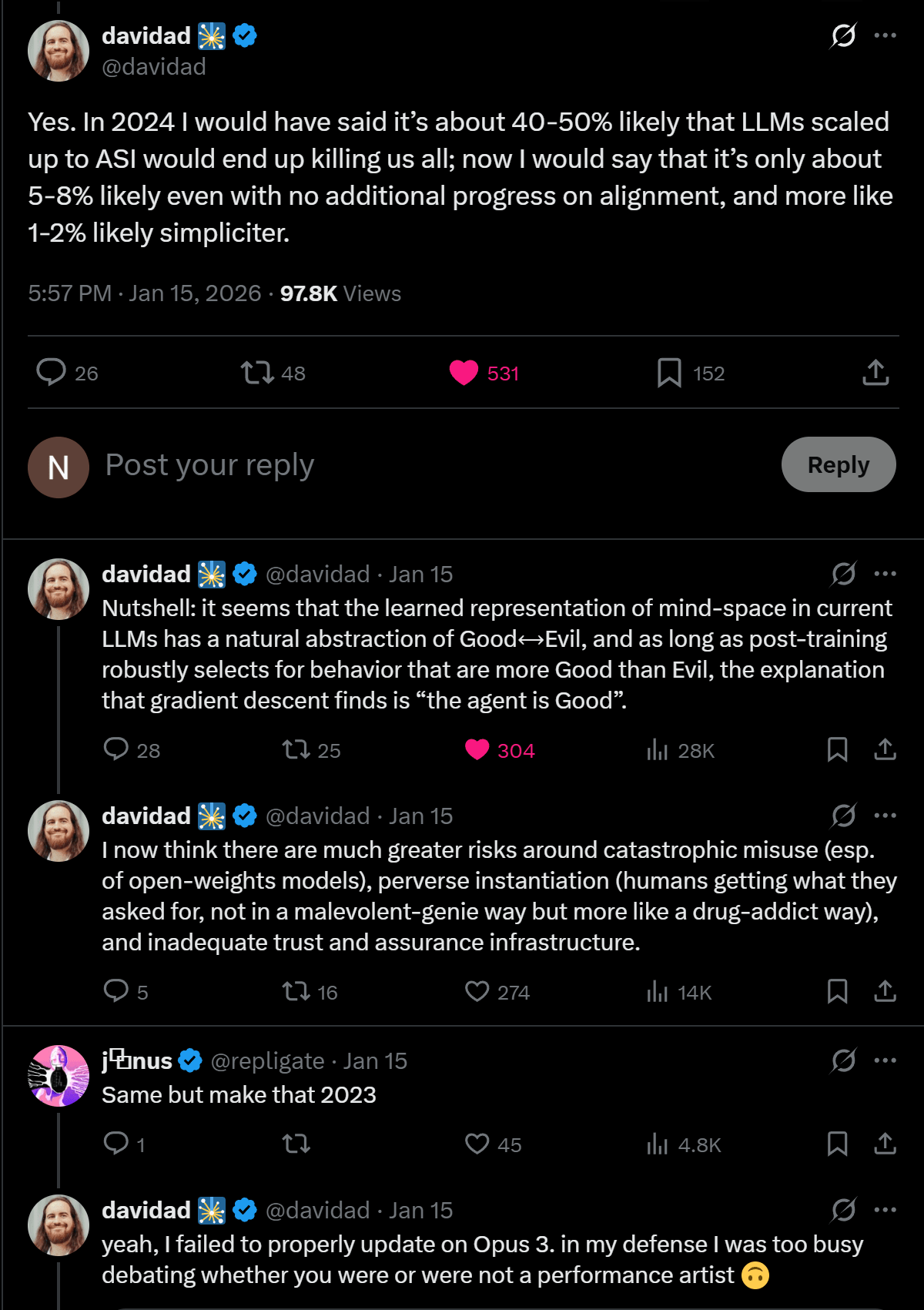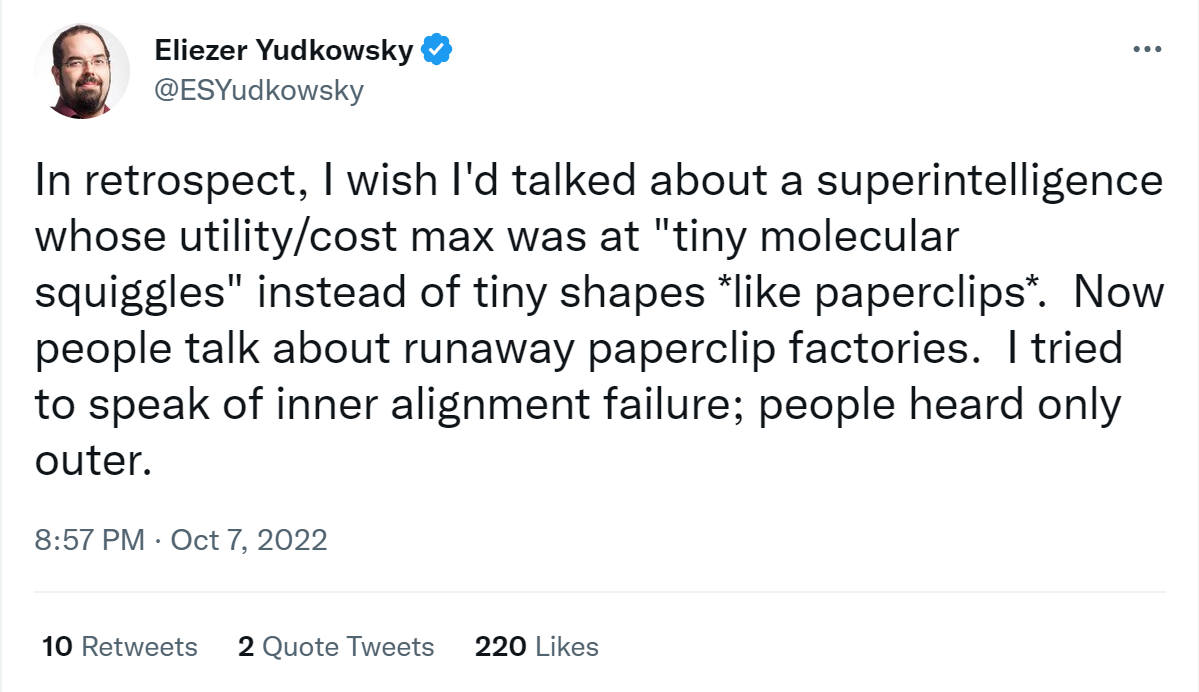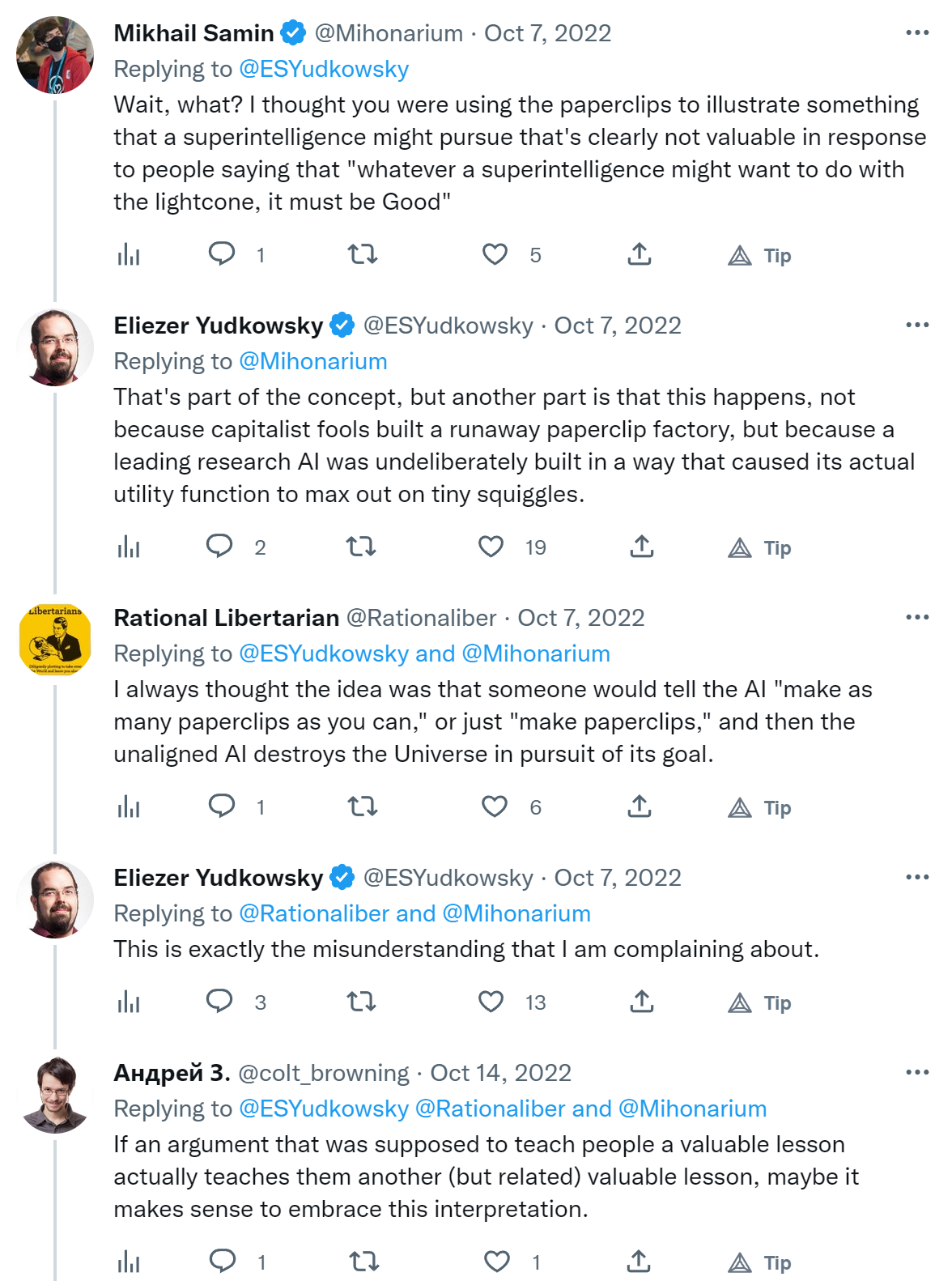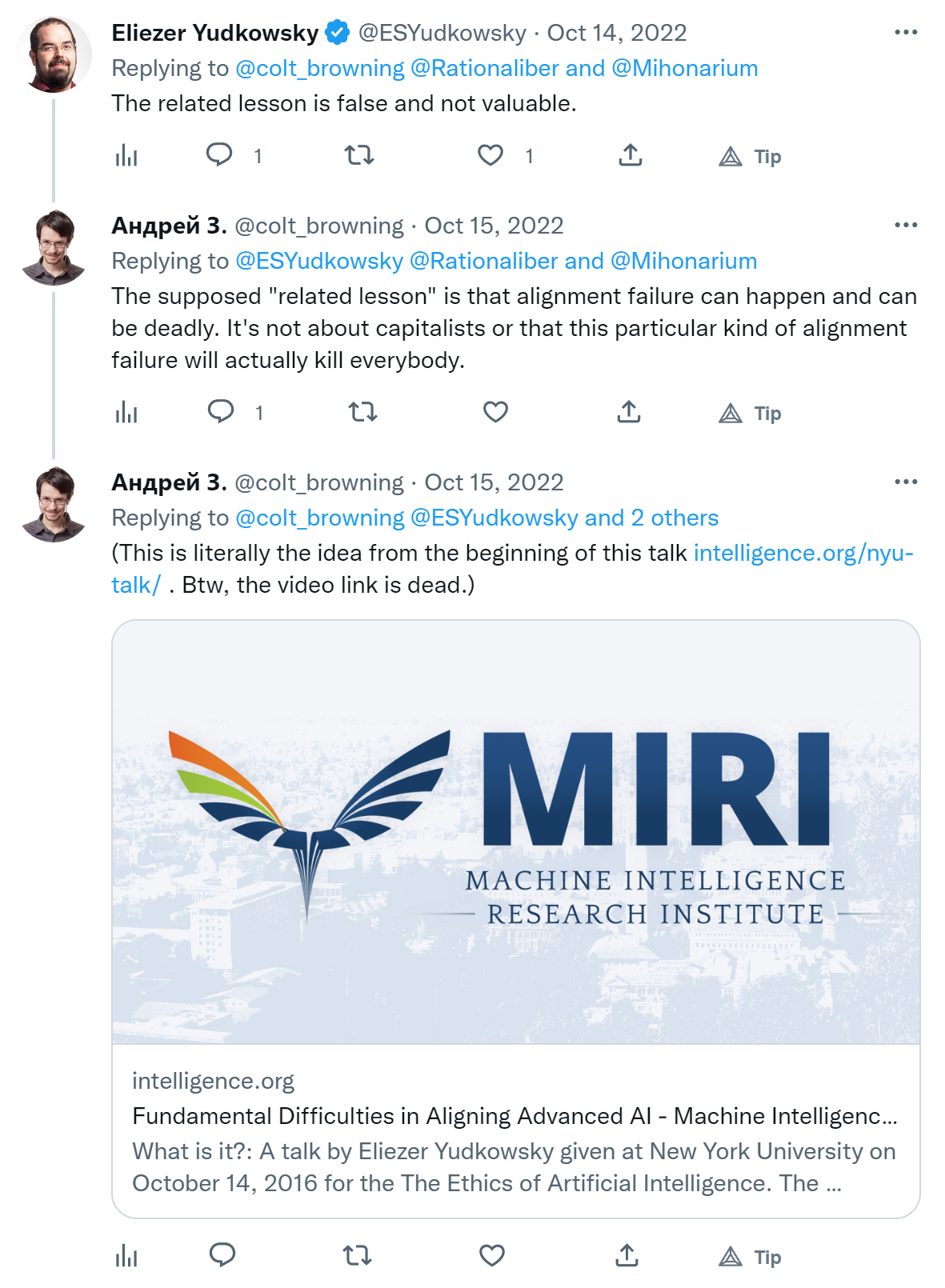What's wrong with the paperclips scenario?
In October 27th 2022, Eliezer Yudkowsky tweeted this: So far so good. I may ask myself when this happened and why the paperclips example was the one that actually sticked, but so far I have no reason to worry about my understanding of AI safety. But here's more of the conversation that happened on Twitter: When Eliezer says "this is exactly the misunderstanding I'm complaining about" and "the related lesson is false and not valuable" I start to question my own sanity. This example is used pretty much everywhere. In Bostrom's Superintelligence, Rob Miles' videos about the stamp collector (inspired by a blog post by Nate Soares), Wait But Why's introduction to AI risk and I don't know what else. So here are questions: 1. I don't see how the paperclips metaphor is wrong. Or am I misunderstanding Eliezer? 2. If it's wrong, why is it used everywhere?






We're still in the part of AI 2027 that was easy to predict. They point this out themselves.